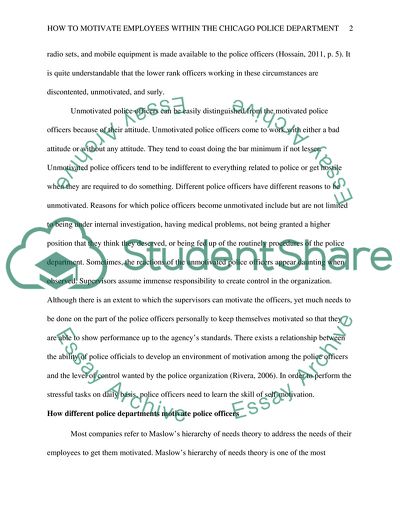Cite this document
(How to Motivate Employees in the Chicago Police Department Coursework Example | Topics and Well Written Essays - 2750 words, n.d.)
How to Motivate Employees in the Chicago Police Department Coursework Example | Topics and Well Written Essays - 2750 words. https://studentshare.org/psychology/1794345-how-to-motivate-employees-within-the-chicago-police-department
How to Motivate Employees in the Chicago Police Department Coursework Example | Topics and Well Written Essays - 2750 words. https://studentshare.org/psychology/1794345-how-to-motivate-employees-within-the-chicago-police-department
(How to Motivate Employees in the Chicago Police Department Coursework Example | Topics and Well Written Essays - 2750 Words)
How to Motivate Employees in the Chicago Police Department Coursework Example | Topics and Well Written Essays - 2750 Words. https://studentshare.org/psychology/1794345-how-to-motivate-employees-within-the-chicago-police-department.
How to Motivate Employees in the Chicago Police Department Coursework Example | Topics and Well Written Essays - 2750 Words. https://studentshare.org/psychology/1794345-how-to-motivate-employees-within-the-chicago-police-department.
“How to Motivate Employees in the Chicago Police Department Coursework Example | Topics and Well Written Essays - 2750 Words”. https://studentshare.org/psychology/1794345-how-to-motivate-employees-within-the-chicago-police-department.


